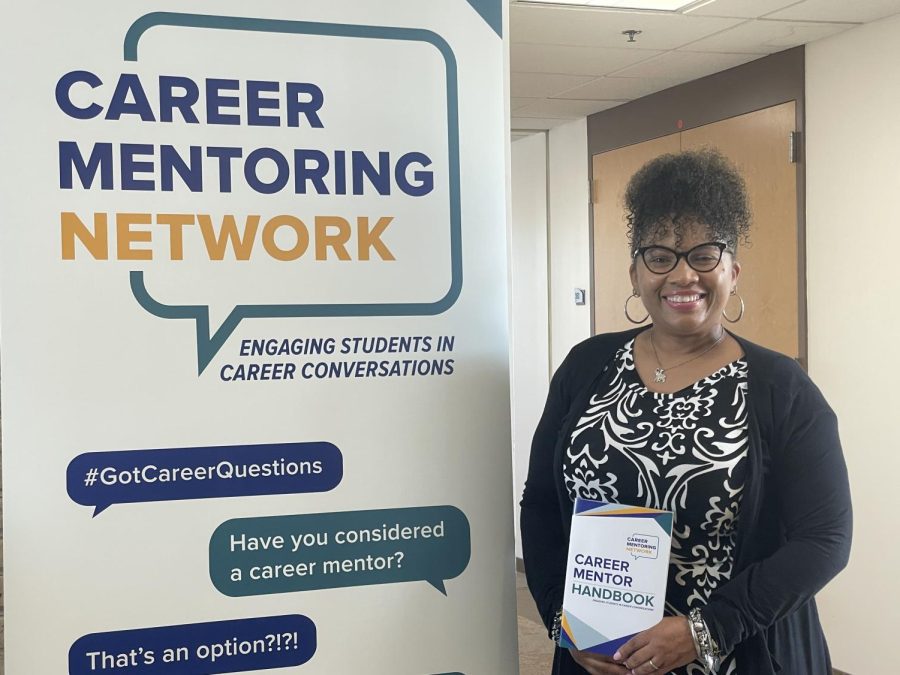Students get mentors, career advice this fall
Internships program coordinator Gwen Johnson says she helped start the Career Mentoring Network to help students get career advice and coaching from faculty mentors in their field.
September 8, 2022
Students will have the chance to work with career advisers in their fields this fall.
AACC’s Sarbanes Center for Career and Civic Engagement launched a program to connect students with faculty mentors who have experience in their future professions.
Internships program coordinator Gwen Johnson, who helped start the Career Mentoring Network, said its mission is to guide students through college into their professional life.
“The mission of the career mentoring network is to connect our students with the very best, the most capable, the most resourceful professionals in their field,” Johnson said, “so that they can feel supported while they are navigating through their academic journey … then ultimately, their professional journey.”
Johnson and Sarbanes Center Director Cathleen Doyle, who co-founded the program, began recruiting and training mentors last year. The program opened to students this semester.
Any student can join the network by signing up using their college email.
Service Learning Coordinator Trésa Ballard, one of the mentors in the network, said the program is for students at “whatever stage” in their professional life to “come and figure out what they want to do.”
Doyle agreed, saying the network’s goal is to “provide greater access to students who are seeking career information, wherever they are in their career journey.”
Third-year engineering transfer student Stephanie Lipman said she wants to join the network to find an internship.
First-year general education student Emily Price said the program would be a good chance for students to find out if they actually like the field they are looking to go into.
“I think hands-on opportunities are just always beneficial, and will have a positive impact,” Price said, “because sometimes people might go to school and get a degree in something, but it’s really the experience doing the job that will also really teach them what they’re getting into.”
First-year computer science student Joshua Brock agreed.
It “sounds like a good idea,” Brock said. “I know in more specialized fields … it’s kind of hard to get yourself out there.”













Jane Sealock • Feb 27, 2023 at 1:50 PM
My granddaughter intends to attend AACC in the future, as she has had an IEP thru school, a mentor would be an enormous help for her in college. At this time, she has various career interests, such as paramedic and law enforcement careers. Can she contact your office to get mentor help for classes she may need to take to qualify for positions in one of these areas? Thanks so much for your help.